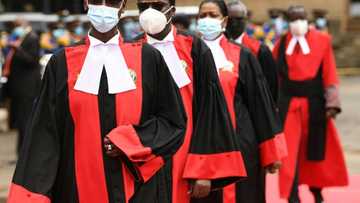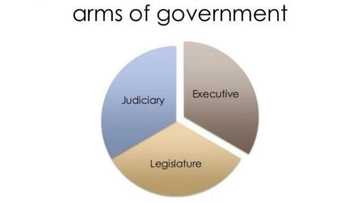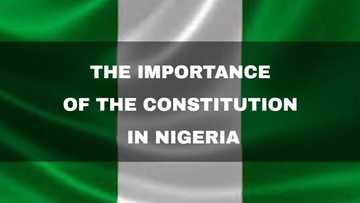Hierarchy of courts in Nigeria explained: Types and other details
The Nigerian judicial system is divided into tier 1, tier 2, tier 3, and tier 4 courts. The different types of courts in Nigeria have varying jurisdictions and structures. The country's constitution further classifies these bodies into federal and state courts. Like in numerous other countries, these judicial bodies exist in a hierarchical structure, with the top courts overseeing the lower ones. How is the modern-day hierarchy of courts in Nigeria?
PAY ATTENTION: Click “See First” under the “Following” tab to see Legit.ng News on your Facebook News Feed!
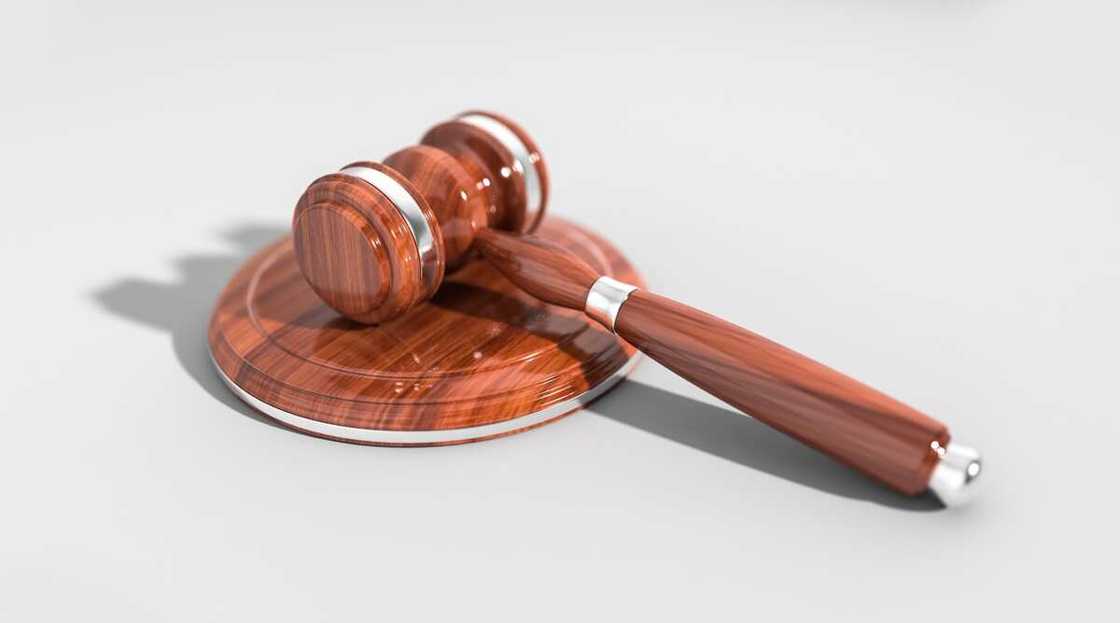
Source: UGC
Typically, the President appoints judges/justices to the federal courts while governors make the appointments to the state courts. All appointments are usually based on the recommendation of the Nigerian National Judicial Council.
List of the hierarchy of courts in Nigeria
Here is a look at the hierarchy of courts and their jurisdiction.
Tier 1 court: The Supreme Court
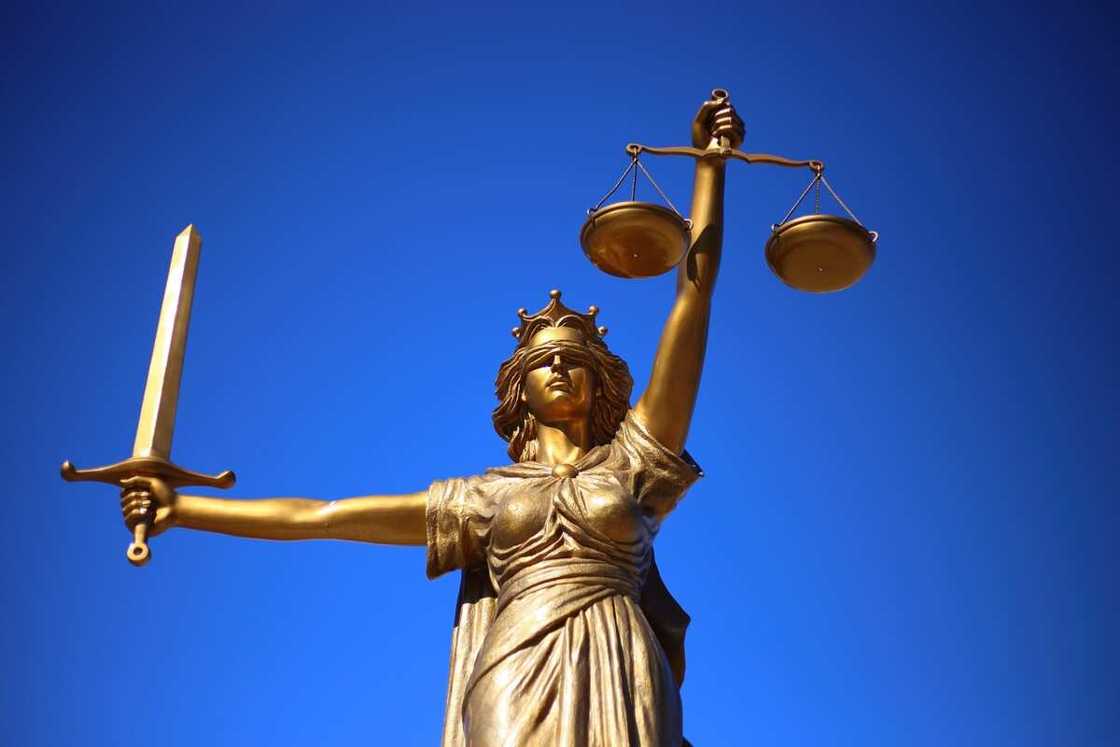
Source: UGC
PAY ATTENTION: Follow us on Instagram - get the most important news directly in your favourite app!
The Supreme Court of Nigeria is the apex judicial body of the land and is based in the capital, Abuja. It is mainly a court of appellate jurisdiction and serves as the final appeal court in the country. It also has original jurisdiction in cases involving states and other states and states and the federal government.
The body was established in 1963 when Nigeria became a republic. It is the only body that can hear appeals from the Nigerian Court of Appeal. It comprises the country's Chief Justice and an additional 21 justices appointed by the President and confirmed by the Senate.
Tier 2 court: The Court of Appeal
The Nigerian Court of Appeal is mainly a court of appellate jurisdiction. Still, it has original jurisdiction on matters pertaining to the election of presidents and vice presidents. Additionally, it is one of the judicial bodies in which the country's three legal systems (English, customary, and Sharia) converge. The body should have at least three judges who are well-versed in Islamic personal law and three in customary law.
Judgements from this tier 2 court can only be appealed to the Supreme Court.
The Court of Appeal is provided for under Section 233 of the country's constitution. It is comprised of the President of the Court of Appeal and any number of justices not less than 49. Here are some of its other functions.
- It is the intermediate appellate judicial body in the country's justice system.
- It hears and determines appeals from the district courts.
- It has the power to determine the results of presidential and gubernatorial elections as well as the office holders' terms in office.
Tier 3 courts
These judicial bodies sit below the tier 2 court. Judgements made here can only be appealed at the Federal Court of Appeal. Here are the various tier 3 judicial bodies.
Federal High Court
The Federal High Court is the third-ranking judicial body in Nigeria. It is presided over by a Chief Judge and several judges as may be determined by the National Assembly. Federal High Courts can be found in more than 15 states in the country.
This body was created under Section 249 of the constitution and has original jurisdiction over civil cases related to the revenue of the Federal Government of Nigeria. Such cases include admiralty, copyright, banking, excise duties, customs, and taxation.
High Court of a State
The State High Court is more like the Federal High Court but at a state level. It is provided for under Section 255 of the country's constitution. The provision allows for a State High Court in each of the 36 states in the country.
The State High Court is presided over by a Chief Judge and a number of judges determined by the National Assembly or State House of Assembly. The body has the widest jurisdiction of judicial bodies in Nigeria on matters of civil and criminal law.
Customary Court of Appeal of a State
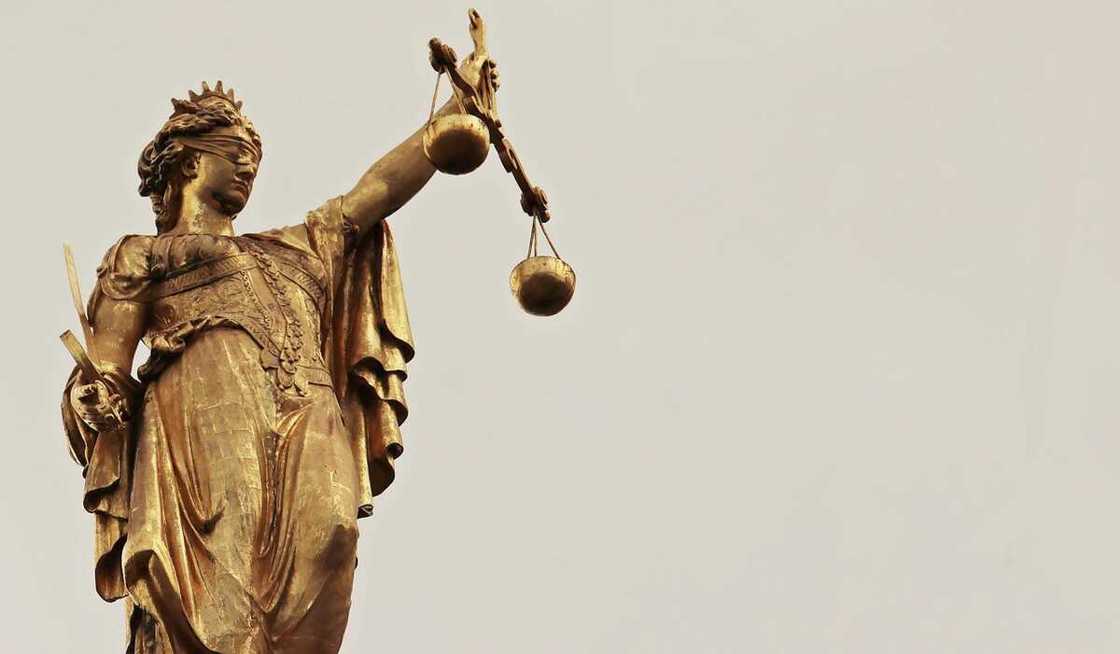
Source: UGC
The Customary Court of Appeal is presided by the president of the body, and is constituted of any number of judges as may be determined by the National Assembly. The body is provided for under Section 265 of the 1999 Constitution of the Federal Republic of Nigeria.
This judicial body exercises appellate and supervisory jurisdiction over civil cases pertaining to customary law. It hears and determines appeals with questions arising from subordinate customary judicial bodies' interpretation or application of customary laws.
National Industrial Court (NIC)
This type of court in Nigeria is provided for under Section 254A of the 1999 Constitution of the Federal Republic of Nigeria. It is ranked fifth in the list of courts in Nigeria. The NIC has exclusive jurisdiction over all industrial disputes listed below.
- Workers' Compensation Law
- Trade Union Law
- Trade Disputes Law
- Labour practices
- Factory Law
Sharia Court of Appeal of a State
This judicial body is provided for under Section 277 of the 1999 Constitution of the Federal Republic of Nigeria. It reviews cases involving the application of Sharia law, particularly in the country's northern areas.
The Sharia Court of Appeal is among the constituent judicial bodies of the unified justice system of North-East Nigeria. This is the region in which Sharia law is widely practised.
The judicial body is presided over by a Grand Kadi and other Kadis. Here is a look at its primary functions.
- Reviewing cases relating to Sharia and Islamic personal law.
- It interprets Islamic customary laws.
- It handles Islamic litigation cases, especially those involving the poor.
Appeals from tier 3 judicial bodies are handled by the respective tier 2 bodies.
Tier 4 courts
These judicial bodies are all at the state level. There is no federal court in this tier. Tier 4 courts are mostly magistrate courts. This body is not provided for under the 1999 Constitution.
It is established by the House of Assembly and functions primarily as a judicial body of the summary judgment. This means that all decisions under these judicial bodies are summarily determined.
Judgements from the tier 4 courts can be appealed only to their respective higher tier 3 judicial bodies.
Which is the lowest court in Nigeria?
The lowest judicial body in Nigeria is called the customary court. It is the easiest form of resolving disputes, especially for the commoner.
How many state law courts do we have in Nigeria?
There are 36 state high courts in the country, one in each state.
How many Courts of Appeal do we have in Nigeria?
There is only one Court of Appeal. However, it has 72 divisions spread across the 36 states in all six geopolitical zones.
Who is the Chief Justice of Nigeria?
The current Chief Justice is Olukayode Ariwoola. He was appointed on 27 June 2022 after the resignation of former Chief Justice Tanko Muhammad.
Which is the highest court in Nigeria?

Source: UGC
The Supreme Court of Nigeria is the highest in the land. It consists of the Chief Justice of Nigeria and several Justices of the Supreme Court, not exceeding twenty-one, as may be prescribed by an Act of the National Assembly.
The hierarchy of courts in Nigeria is based on an elaborate structure that grants the various bodies varying jurisdictions. The hierarchy sees higher tier courts handle matters previously handled at lower tier judicial bodies. The hierarchy ends at the apex judicial body of the land, the Supreme Court.
READ ALSO: Types of courts in Nigeria and their functions explained
Legit.ng recently published an article about the types of courts in Nigeria and their functions. The judiciary is one of the three arms of the Nigerian government. It is mandated to adjudicate disputes arising between individuals, governments, and corporate entities in their inter-relationships with one another within or outside the country under the law.
There are different types of judicial bodies in Nigeria, all part of the country's judiciary. The bodies exist in a hierarchical order, with those above being superior to the ones below. These bodies also have varying jurisdictions.
Source: Legit.ng

Jackline Wangare (Lifestyle writer) Jackline Simwa is a content writer at Legit.ng, where she has worked since mid-2021. She tackles diverse topics, including finance, entertainment, sports, and lifestyle. Previously, she worked at The Campanile by Kenyatta University. She has more than five years in writing. Jackline graduated with a Bachelor’s degree in Economics (2019) and a Diploma in Marketing (2015) from Kenyatta University. In 2023, Jackline finished the AFP course on Digital Investigation Techniques and Google News Initiative course in 2024. Email: simwajackie2022@gmail.com.

Adrianna Simwa (Lifestyle writer) Adrianna Simwa is a content writer at Legit.ng where she has worked since mid-2022. She has written for many periodicals on a variety of subjects, including news, celebrities, and lifestyle, for more than three years. She has worked for The Hoth, The Standard Group and Triple P Media. Adrianna graduated from Nairobi University with a Bachelor of Fine Arts (BFA) in 2020. In 2023, Simwa finished the AFP course on Digital Investigation Techniques. You can reach her through her email: adriannasimwa@gmail.com

